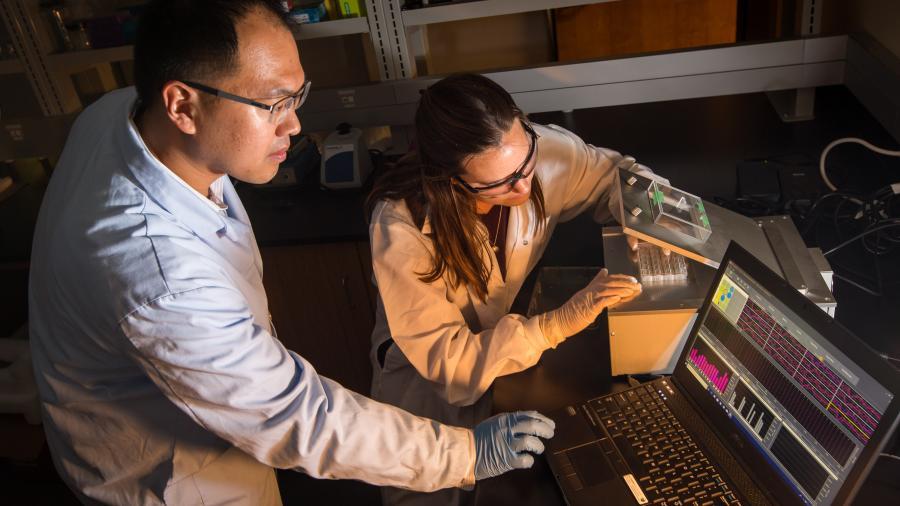Yi-Fan Lu Screens New Drugs to Find Cure to Alzheimer's Using Cutting-Edge Technology to Understand Neurological Disorders

A new high-tech tool is helping Westmont researchers understand human neurological disorders, such as Alzheimer’s disease. Yi-Fan Lu, assistant professor of biology, has used the new microelectrode array to detect and record the response of neurons to genetic mutation or toxins.
“The microelectrode array can also be used to screen for new drugs, examining if any compounds have reversed the effect of the mutation or the toxin to the neurons,” Lu says. “This equipment has the power to push neurological disorder research to the next level in 20 years and potentially discover new drugs for many diseases that currently have no cure.”
Lu and Kristi (Lazar ’00) Cantrell, associate professor of chemistry at Westmont, collaborate with colleagues at UC Santa Barbara to examine peptides that may lead to Alzheimer’s disease. “I hope this research will lead to the advancement of the understanding of Alzheimer’s and other neurodegenerative diseases,” Lu says. “The project that we are working on is part of a much larger study into the mechanisms of the disease, and I would love to contribute to the knowledge of the scientific community.
Scientific advancement typically happens in small increments, but I hope that what we are doing is an important one.”
Westmont’s academic program gives students opportunities to work directly with faculty on research and scholarly projects. In 2019, Lu and Zion Shih, who recently graduated, attended the annual Biomedical Research Conference for Minority Students (ABRCMS) in Anaheim, and presented a poster on "Defining Primary Cortical Neuronal Signaling Bursts of the MED64 Presto System." The conference is one of the largest undergraduate biomedical conferences in the U.S. with more than 2,000 students and 350 participating colleges.